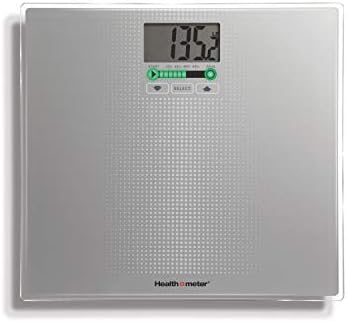How to Start Keto After 40: Essential Guide for Women
This post may contain affiliate links. If you purchase through these links, I may earn a small commission at no extra cost to you. LEARN MORE.
Starting a keto diet after the age of 40 can be a powerful way for women to improve their health and well-being.
This low-carb, high-fat eating plan is known to support weight loss, boost energy, and balance hormones.
For those starting keto later in life, prioritizing healthy fats and staying informed about nutritional needs is key to success.

Transitioning to a keto lifestyle may require some adjustments, especially for women over 40, as the body’s metabolism and nutritional requirements change with age.
Focusing on high-quality fats like olive oil and avocados and maintaining an adequate protein intake can help ease the process.
Planning ahead with balanced meals can make the transition smoother and more sustainable.
Personalized keto plan: Try the Custom Keto Diet designed for your age, weight, and preferences.
Key Takeaways
- Keto can support weight and health management for women over 40.
- Focusing on healthy fats and proteins is crucial for success.
- Planning and adapting ensure long-term benefits and sustainability.
Understanding the Keto After 40

Women over 40 can use the keto diet to manage weight and boost energy.
This stage of life involves hormonal changes that affect metabolism, making keto a valuable option.
It’s important to address common myths about keto to understand its benefits and effectiveness.
What Makes the Keto Diet Unique for Women Over 40
The ketogenic diet is a low-carb, high-fat plan that shifts the body’s energy source from carbohydrates to fat, entering a state called ketosis.
For women over 40, this can help lose weight, as the diet boosts fat burning while maintaining a sense of fullness.
Healthy fats, like those from avocados and nuts, should be included to support insulin sensitivity and overall metabolism.
This can help reduce the risk of age-related weight gain.
Read about the most common keto mistakes beginners make
Hormonal Changes and Metabolic Shifts
As women age, their hormones undergo significant changes.
This includes a drop in estrogen levels, which can slow down metabolism and affect the body’s ability to use insulin effectively.
The keto diet can counter these changes by promoting stable blood sugar levels and supporting insulin sensitivity.
This helps in maintaining energy levels and managing weight, even as metabolism slows.
Ketosis helps the body efficiently use fats for energy, which can be beneficial during this life stage.
Explore how keto affects woman hormones and metabolism.
Common Myths and Misconceptions
Some believe the keto diet is too extreme or unhealthy, especially for older adults.
Critics often mention high-fat intake leading to heart risks.
In reality, when done correctly, with an emphasis on healthy fats, keto can be a very effective tool for losing weight and improving health.
It’s not about eliminating all carbs but reducing them to allow the body to enter ketosis naturally.
This helps in managing weight without the sharp hunger spikes often associated with other diets.
Debunk myths in our clean keto vs dirty keto guide
Preparing to Start Keto as a Woman Over 40

Beginning a keto diet after 40 involves key steps: consulting doctors, setting clear goals, and reviewing health conditions.
It’s important to consider factors like heart disease and type 2 diabetes for a tailored approach.
Consulting Healthcare Professionals
Before starting a keto diet, women over 40 should consult healthcare professionals.
This step ensures safety, especially for those managing conditions like heart disease, diabetes, or high cholesterol.
Doctors can provide valuable insights into how keto might affect these conditions.
For instance, they might need to monitor kidney health since keto is high in protein and fats, which could affect the kidneys.
Consulting a professional helps to tailor the diet to fit individual health needs.
Read more about keto and heart health here.
Setting Realistic Goals and Expectations
Setting goals is crucial when starting keto.
Women over 40 should have realistic expectations regarding weight loss and health improvements.
It’s important to know that initial weight loss might be mostly water weight.
Long-term goals should focus on maintaining muscle mass and managing conditions like type 2 diabetes or cholesterol levels.
It’s also important to track energy levels and mood changes.
By understanding how keto affects the body, one can set achievable milestones and stay motivated throughout the journey.
Assessing Current Health Status
Before beginning keto, evaluating one’s current health status is vital.
This involves knowing body metrics, like weight and waist measurement, as well as health metrics like blood sugar and cholesterol levels.
Understanding family history concerning conditions like kidney stones or cancer is important too.
Tracking these measurements helps in monitoring progress and adjusting the diet as needed.
This assessment serves as a baseline to understand how the diet is affecting overall health, ensuring that the keto journey is both effective and safe.
Check out the measurement tools from Amazon below.
Building an Effective Keto Plan

Building an effective keto plan requires focusing on a low-carb, high-fat diet.
Balancing these components helps pave the way for a successful transition into ketosis, the metabolic state where the body burns fat for fuel.
Here are key points to keep in mind when crafting a personalized keto plan.
Structuring Your Low-Carb and High-Fat Diet
Understanding Macro Ratios: A keto diet typically consists of about 70% fats, 20% proteins, and 10% carbohydrates.
This balance helps stimulate the body’s shift into ketosis.
Tailoring Calories to Needs: Adjust total calorie intake to the individual’s daily needs.
Age, activity level, and metabolism affect how many calories are required for weight management or loss.
Flexibility for Individual Differences: While sticking to keto principles, allow some flexibility for personal tastes and lifestyle.
This may include slight variations in carb and fat intake to ensure long-term adherence.
Follow this 7-day keto meal plan for beginners
Choosing the Right Foods and Meal Timing
Include Whole Foods: Emphasize foods like fatty fish, avocado, nuts, and seeds.
Avoid processed foods which can derail efforts.
Meal Timing: Some find success with intermittent fasting, which can complement keto by further stabilizing insulin and blood sugar levels.
Consistent Meal Patterns: Eating at regular intervals helps maintain energy levels throughout the day.
This can be adjusted based on personal preferences and lifestyle factors.
Review keto and intermittent fasting to help with your weight loss journey.
Incorporating Healthy Fats and Limiting Carbs
Prioritize Healthy Fats: Opt for fats from nuts, seeds, olives, and avocados instead of trans fats or heavily processed oils.
This supports heart health and sustains energy levels.
Limit Carb Intake: Stay mindful of carb sources.
Reduce or eliminate high-carb foods like bread and sugary snacks.
Substitutes for Common Foods: Use low-carb substitutes like almond flour instead of regular flour and zucchini noodles in place of pasta.
This helps limit carb intake without missing out on favorite meals.
Check our complete guide to keto sweeteners
Sample Grocery List for Beginners
Healthy Fats and Proteins:
- Avocados
- Salmon
- Eggs
- Chicken
Low-Carb Vegetables:
- Spinach
- Broccoli
- Green beans
- Zucchini
Nuts and Seeds:
- Almonds
- Walnuts
- Chia seeds
- Flaxseeds
Dairy Alternatives:
- Unsweetened almond milk
- Greek yogurt
Use this list to ensure a variety of foods while keeping carbs low.
Tailor choices to suit dietary preferences, adjusting the list as needed for individual tastes and objectives.
Looking for keto grocery list? Read our guide on complete keto grocery list.
Managing Challenges and Common Side Effects

Embarking on a keto diet after 40 can bring specific challenges.
Many women face symptoms like keto flu, fatigue, and constipation.
Proper hydration and understanding how to manage hunger and headaches are crucial.
Adapting to Keto Flu and Fatigue
Keto flu can occur as the body adjusts to burning fat instead of carbs.
Symptoms like headaches, fatigue, and nausea are common.
To ease these effects, it’s helpful to increase electrolyte intake.
This can be done by consuming foods rich in sodium, potassium, and magnesium.
Short periods of rest can also aid recovery.
Tracking energy levels may help identify patterns and improve stamina.
Some find that slow and steady adaptation to keto helps in minimizing symptoms.
Learn how to overcome keto flu.
Staying Hydrated and Preventing Constipation
Proper hydration is essential on the keto diet.
It helps to manage water weight and prevent constipation.
Women on keto should aim for at least eight cups of water daily.
Including fiber-rich vegetables like broccoli and spinach can alleviate constipation.
Consistent physical activity, such as walking, can support digestion and help keep bowel movements regular.
Review the best keto-friendly vegetables
Dealing with Hunger and Headache
Hunger and headaches can be common when starting keto.
Eating balanced meals with adequate protein and healthy fats can keep hunger at bay.
This may reduce the urge for snacking, which is key to maintaining ketosis.
For managing headaches, ensuring a stable intake of electrolytes may assist.
A small amount of saltwater can sometimes provide relief.
Monitoring carb intake and maintaining consistency are crucial for minimizing these unpleasant symptoms.
Try Electrolyte and Protein Supplements to support your transition.
Maximizing Weight Loss and Long-Term Success

Adopting a keto diet can be an effective way for women over 40 to lose weight and gain better health.
Sustainable methods are crucial to avoid common pitfalls and ensure continued success.
Tracking Progress and Adjusting Your Plan
Regularly tracking your progress helps in making necessary adjustments.
Tools like food journals or apps can be useful.
Keeping an eye on weight, measurements, and energy levels gives insights into how well the plan is working.
Adjustments might be needed if weight loss stalls.
This could include changing the macronutrient ratio or adjusting calorie intake.
Staying flexible ensures the plan remains effective and aligns with personal goals.
Ready to start your keto journey? Follow a Tailored Keto Plan that’s helped others achieve success!
The Role of Physical Activity and Fitness
Incorporating physical activity is important to enhance weight loss and maintain muscle mass. Aerobic exercises, like walking or cycling, support burning calories.
Strength training helps maintain or increase muscle mass, contributing to a higher metabolic rate. Finding a balance between cardio and strength exercises can enhance overall fitness.
Check our guide on keto and exercise to optimize your work out.
Intermittent Fasting for Enhanced Results
Intermittent fasting can boost the effects of a keto diet. By scheduling eating windows and fasting periods, the body can enhance its fat-burning capabilities.
Common methods include the 16/8 or 5:2 fasting schedules. Fasting might help manage insulin levels and improve weight loss outcomes.
It’s important to listen to one’s body and adjust fasting times as needed. Always ensure that any fasting method aligns with dietary needs and lifestyle preferences.
Combine keto with intermittent fasting for faster results – learn how
Potential Benefits and Health Considerations

The keto diet can offer numerous health benefits for women over 40. It may help manage blood sugar levels, support brain health, and promote long-term wellness.
Blood Sugar and Insulin Levels
The ketogenic diet significantly reduces carbohydrate intake, which can positively impact blood sugar and insulin levels. By lowering carbs, the body shifts towards using fats as a primary energy source.
This change encourages more stable blood sugar levels. Lower blood sugar can reduce insulin spikes, which is beneficial for those with insulin resistance.
Women over 40 might find it helpful for managing metabolic health. Ketones produced during this diet help fuel the body efficiently and maintain energy balance.
Neurological and Disease-Related Benefits
A keto diet may offer neurological benefits and potentially help with various medical conditions. Ketones provide an alternative energy source for the brain, which can be advantageous for Alzheimer’s disease management.
Research suggests it may support brain health, also benefiting those with brain injuries and epilepsy. Additionally, some studies indicate a reduced risk of certain cancers, although more research is necessary.
Long-Term Health and Maintenance
For long-term health, the keto diet can aid with weight management and improve certain health markers. Some people experience improved cholesterol levels and reduced heart disease risk.
It’s important to note that consistent adherence is vital, as frequent “cheat days” might disrupt progress. Incorporating healthy fats such as MCT oil can support energy levels and sustain the benefits of ketosis.
Women considering keto should be aware of both its potential long-term advantages and necessary adjustments to maintain wellness over time.
Explore the science behind keto and longevity
Frequently Asked Questions
Starting a keto diet after 40 involves choosing the right foods, considering specific health impacts, and knowing effective weight loss strategies. Men and women over 40 may have different considerations and can start this diet at home without extra expense.
What are the essential foods to include in a keto diet for women over 40?
Women over 40 should focus on foods high in healthy fats like avocados, nuts, seeds, and olive oil. Protein from sources such as fish, poultry, and eggs is important.
Low-carb vegetables, including spinach and zucchini, are also vital. These foods help maintain energy and support overall health goals.
Can you provide a basic keto diet plan that is suitable for beginners?
A simple keto meal plan can include eggs and spinach for breakfast, a salad with chicken and avocado for lunch, and a dinner of grilled salmon with asparagus.
Snacks like almonds or cheese fit well. This basic plan is low in carbs while high in fats and proteins.
What are the potential long-term effects of a ketogenic diet on women’s health?
Long-term effects of keto can include improved blood sugar control, more stable energy levels, and potential weight loss. However, some may experience nutrient deficiencies if the diet is not properly balanced.
Regular health check-ups are recommended to monitor these effects.
How can women over 40 successfully lose weight on a keto diet?
Women over 40 can enhance weight loss on keto by carefully tracking carb intake, incorporating regular exercise, and staying hydrated. Consistency and patience are key.
Monitoring progress and adjusting the diet as needed can help achieve weight loss goals effectively.
Are there specific considerations for men over 40 following a keto diet?
Men over 40 should consider maintaining adequate protein intake to support muscle mass. Monitoring cholesterol and heart health is also important, as keto can impact these areas.
Engaging in resistance training can help maintain strength and body composition.
How can a ketogenic diet be started at home without additional costs?
Starting keto at home involves using existing pantry staples like eggs, canned tuna, and frozen vegetables. Avoiding expensive specialty products and instead focusing on whole, natural foods can keep costs low.
Planning meals ahead of time helps manage resources efficiently.
Conclusion
Starting keto after 40 can be a great way to enhance health and energy levels.
Women often face unique health challenges at this stage, and keto may help address some of these.
Focus on consistent protein intake and prioritize healthy fats.
This can support muscle maintenance and energy.
Cutting back on processed carbs helps maintain this balance.
Regular exercise is important.
It supports overall health and complements the dietary changes.
Even simple activities, like walking, can make a difference.
Managing stress and getting adequate sleep are also crucial.
Make time for relaxation and rest.
It’s important to consult with a healthcare provider before making major dietary changes.
They can provide personalized advice and ensure that keto is a safe choice.
Ready to reboot your health after 40?
Grab your Custom Keto Plan today and make your transformation effortless.






